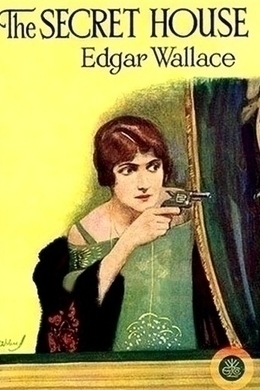
-
EPUB 240 KB
-
Kindle 305 KB
-
Support epubBooks by making a small $2.99 PayPal donation purchase.
Description
What if the head honcho of one of the country’s most lurid gossip rags was suspected of running a very lucrative sideline in extortion of the wealthy and powerful? That’s exactly what appears to be the case in The Secret House, a satisfyingly complex tale of treachery, titillation and good, solid detective work.
235 pages with a reading time of ~3.75 hours (58755 words), and first published in 1919. This DRM-Free edition published by epubBooks, 2014.
Community Reviews
There are currently no other reviews for this book.
Excerpt
A man stood irresolutely before the imposing portals of Cainbury House, a large office building let out to numerous small tenants, and harbouring, as the indicator on the tiled wall of the vestibule testified, some thirty different professions. The man was evidently poor, for his clothes were shabby and his boots were down at heel. He was as evidently a foreigner. His clean-shaven eagle face was sallow, his eyes were dark, his eyebrows black and straight.
He passed up the few steps into the hall and stood thoughtfully before the indicator. Presently he found what he wanted. At the very top of the list and amongst the crowded denizens of the fifth floor was a slip inscribed:
“THE GOSSIP’S CORNER”
He took from his waistcoat pocket a newspaper cutting and compared the two then stepped briskly, almost jauntily, into the hall, as though all his doubts and uncertainties had vanished, and waited for the elevator. His coat was buttoned tightly, his collar was frayed, his shirt had seen the greater part of a week’s service, the Derby hat on his head had undergone extensive renovations, and a close observer would have noticed that his gloves were odd ones.
He walked into the lift and said, “Fifth floor,” with a slight foreign accent.
He was whirled up, the lift doors clanged open and the grimy finger of the elevator boy indicated the office. Again the man hesitated, examining the door carefully. The upper half was of toughened glass and bore the simple inscription:
“THE GOSSIP’S CORNER. KNOCK.”
Obediently the stranger knocked and the door opened through an invisible agent, much to the man’s surprise, though there was nothing more magical about the phenomenon than there is about any electrically controlled office door.
He found himself in a room sparsely furnished with a table, a chair and a few copies of papers. An old school map of England hung on one wall and a Landseer engraving on the other. At the farthermost end of the room was another door, and to this he gravitated and again, after a moment’s hesitation, he knocked.
“Come in,” said a voice.
He entered cautiously.
The room was larger and was comfortably furnished. There were shaded electric lamps on either side of the big carved oak writing-table. One of the walls was covered with books, and the litter of proofs upon the table suggested that this was the sanctorum.
But the most remarkable feature of the room was the man who sat at the desk. He was a man solidly built and, by his voice, of middle age. His face the new-comer could not see and for excellent reason. It was hidden behind a veil of fine silk net which had been adjusted over the head like a loose bag and tightened under the chin.
The man at the table chuckled when he saw the other’s surprise.
“Sit down,” he said–he spoke in French–“and don’t, I beg of you, be alarmed.”
“Monsieur,” said the new-comer easily, “be assured that I am not alarmed. In this world nothing has ever alarmed me except my own distressing poverty and the prospect of dying poor.”
The veiled figure said nothing for a while.
“You have come in answer to my advertisement,” he said after a long pause.
The other bowed.
“You require an assistant, Monsieur,” said the new-comer, “discreet, with a knowledge of foreign languages and poor. I fulfill all those requirements,” he went on calmly; “had you also added, of an adventurous disposition, with few if any scruples, it would have been equally descriptive.”
The stranger felt that the man at the desk was looking at him, though he could not see his eyes. It must have been a long and careful scrutiny, for presently the advertiser said gruffly:
“I think you’ll do.”
“Exactly,” said the new-comer with cool assurance; “and now it is for you, dear Monsieur, to satisfy me that you also will do. You will have observed that there are two parties to every bargain. First of all, my duties?”
The man in the chair leant back and thrust his hands into his pockets.
“I am the editor of a little paper which circulates exclusively amongst the servants of the upper classes,” he said. “I receive from time to time interesting communications concerning the aristocracy and gentry of this country, written by hysterical French maids and revengeful Italian valets. I am not a good linguist, and I feel that there is much in these epistles which I miss and which I should not miss.”
The new-comer nodded.
